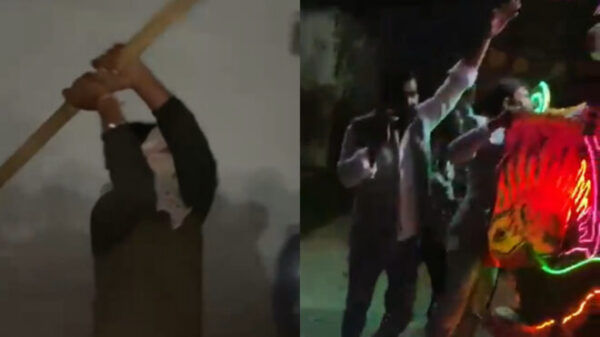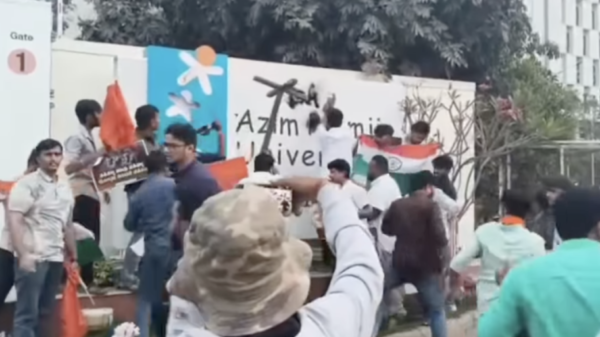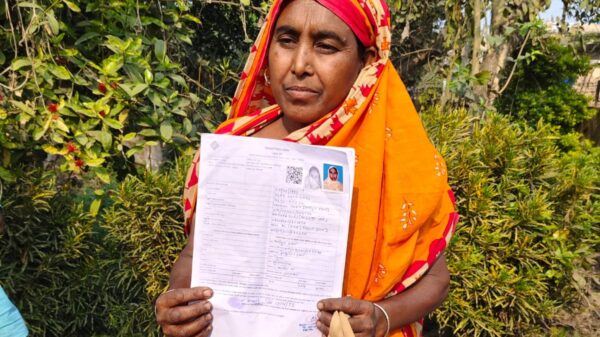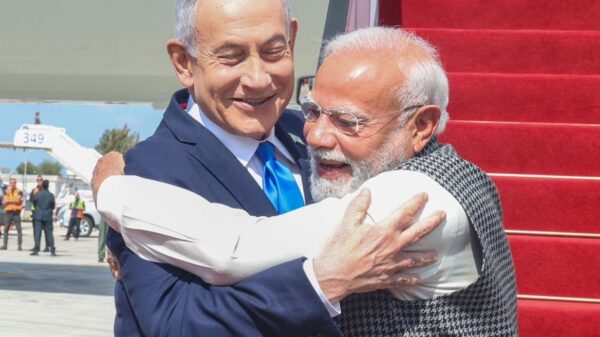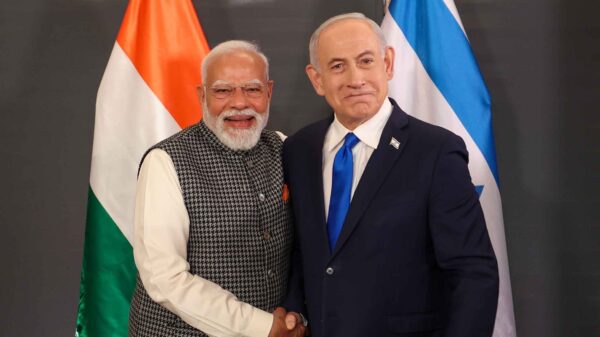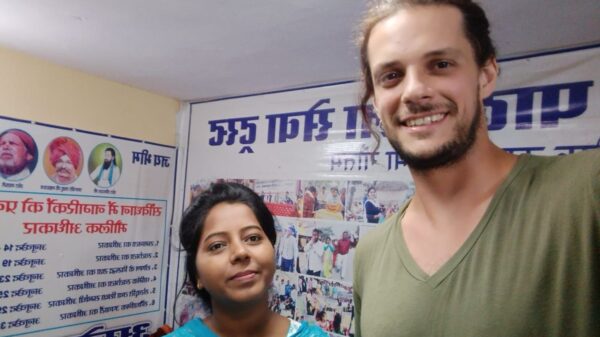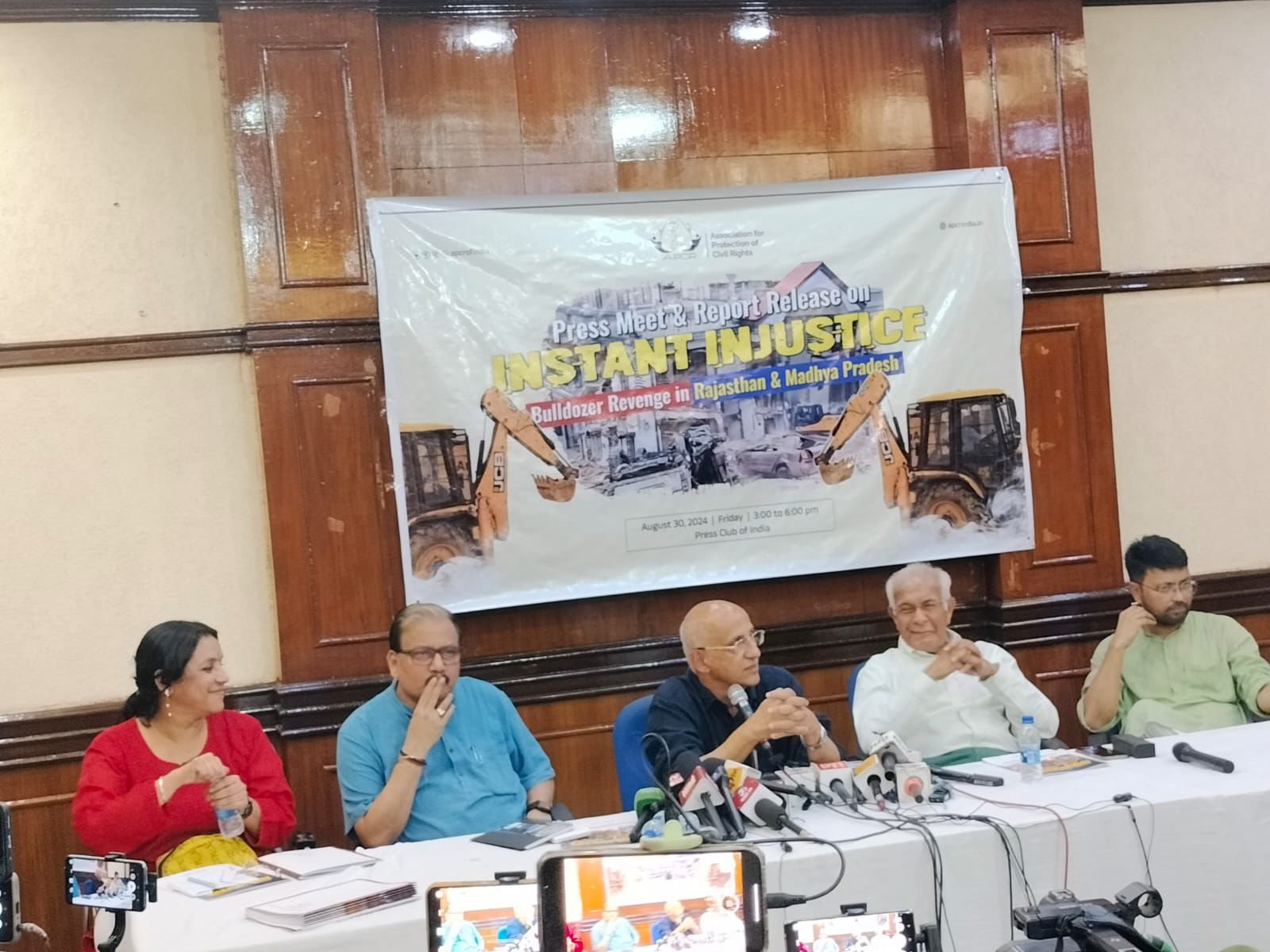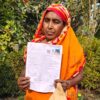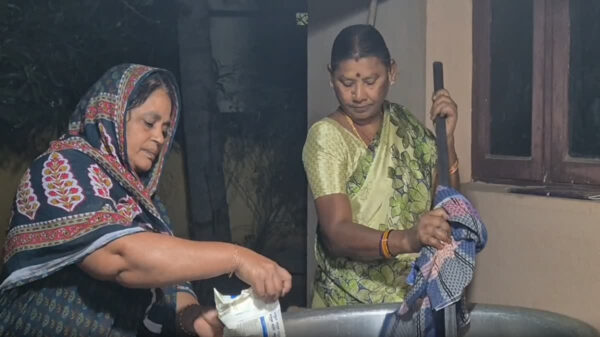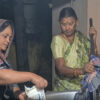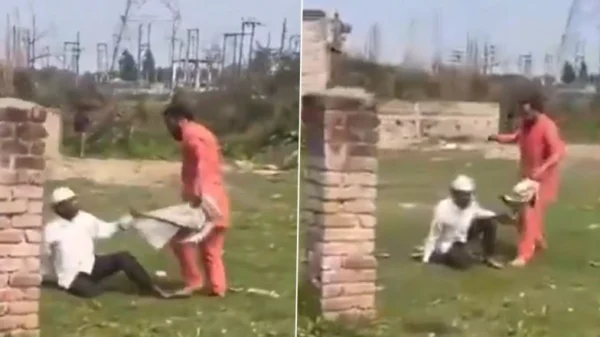On 30th August, a press conference was held at the Press Club of India where the Association for Protection of Civil Rights (APCR) presented two reports on the use of state machinery in Chhatarpur, Madhya Pradesh, and Udaipur, Rajasthan. A panel of speakers, including legal experts, activists, and former government officials, discussed the reports titled “State-Sanctioned Mobocracy: How State Machinery Fuels Communal Agendas and Extrajudicial Punishments” and “Bulldozing Dissent: Disproportionate State Crackdown on Muslim Protestors.”
The event, moderated by Nadeem Khan, zeroed in on what the APCR portrays as an example of lopsided moves made by state authorities in light of communal tensions. The panellists claimed how these actions frequently involve the use of bulldozers to destroy properties, raising concerns regarding India’s rule of law and minority rights protection.
Udaipur Incident
Advocate Muzammil Rizvi initiated the press conference by presenting a summary of the Udaipur report’s findings. Rizvi talked about an incident that started as a small fight between two students but escalated into a larger communal issue. He mentioned that, given the communal context, the administration’s decision to demolish one of the accused’s properties was seen as an excessive measure.
Rizvi argued that the state’s response was motivated not only by enforcing the law but also by communal motives, resulting in “bulldozer justice.” The increasing use of demolitions as punitive measures against individuals from minority communities has been referred to by this term.
M. Huzaifa, another APCR advocate, questioned whether the administration’s actions in Udaipur were legal. He emphasized that such measures subvert the lawful interaction and set a dangerous trend for extrajudicial activities.
Prakriti, an APCR researcher, spoke on the broader effects of these actions, especially on women in the affected communities. She said, “What we are witnessing is the dishing out of retributive justice – justice with the intent of revenge instead of restorative justice, which is instead aimed at reform and healing of the society as a whole with everyone being given their due justice, which is what the courts, the police and state machinery should focus on instead.”
Chhatarpur Incident
Syed Javed Akhtar of the APCR in Madhya Pradesh spoke about the situation in Chhatarpur, where on August 21 two rallies resulted in actions that primarily targeted the Muslim community. As indicated by Akhtar, the administration’s reaction to these conventions, which included arrests and demolitions, created an atmosphere of fear among Muslim families, driving some to escape the region.
Akhtar criticized the administration for taking a partisan stance, arguing that such actions foster a climate of fear and division. He called for a more balanced and legitimate reaction to communal tensions.
Broader Context and Media Critique
Harsh Mander, a former IAS officer, provided historical context, noting that bulldozers have long served as symbols of state power. Expressing concerns about the current administration’s normalization of such actions, Mander argued that bulldozers are increasingly being used as oppression tools.
“We will remember the second term of Narendra Modi with lynchings but this third term we don’t need a lynch mob. The government itself is in the form of a mob targeting a particular community. There is no district left in Madhya Pradesh where no such state-sponsored bulldozer action has been taken. I am yet to find a collector in Madhya Pradesh who can say that I will not abide by this unconstitutional process,” Mander said.
Bhasha Singh, an independent journalist, focused on the media’s coverage of these events. Singh also pointed out how the public’s acceptance of these bulldozer actions is supported by the media’s bias to portray such actions as normal.
Former Chief Information Commissioner Wajahat Habibullah drew similarities between the current situation in India and historical instances of state overreach. Pointing out how the use of bulldozer actions for political gain is a dangerous trend, Habibullah cautioned against blurring the lines between nationalism and patriotism.
First Supreme Court Representation
“For the first time in the past 8-10 years of bulldozer rule, two victims of bulldozer injustice have approached the Supreme Court. This has only been possible due to the relentless efforts of APCR’s grassroots workers. In these times, when seeking justice has become so daunting and expensive, two poor families—one from Udaipur, Rajasthan, and the other from Ratlam, Madhya Pradesh—have placed their trust in APCR,” Nadeem Khan said.
“The APCR’s representation in the Supreme Court will be led by Senior Advocate C.U. Singh, AOR Fauzia Shakil, and their team, who will work tirelessly to raise the voices of these two families and thousands of other victims.”
A Call for Accountability
Professor Manoj Jha, a member of the Rajya Sabha, concluded the session wherein he called for a reassessment of how the state and the judiciary deal with these issues. He said, “The neutrality of polarization and elections has caused a lot of harm and the judiciary has a selective approach. However, I don’t agree that there is a matter of whether the bench is a favourable one or not. The perspective must be changed. Nobody raised their voice when bulldozer reached Kashmir, which has become a tool for campaigning during elections.”
The APCR ended the conference with a call to action, encouraging society, the legal system, and worldwide observers to recognize the seriousness of these issues and stand firm against what they call state-endorsed violence.







